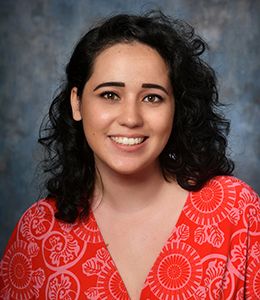
Maureen A. Coyle
- Assistant Professor
- Psychology & Mental Health
Affiliated Programs
Education
- PhD, Basic & Applied Social Psychology (2022)
The Graduate Center, City University of New York (NY) - MA, General Psychology (2015)
The New School for Social Research (NY) - BA, Psychology (2013)
Pace University (NY)
About Me
I am a first-generation college student who was born and raised in Brooklyn, New York. I have always been curious about how individuals influence others' thoughts, feelings, and behaviors, which is why I ultimately pursued my PhD in social psychology. I aim to get students excited about the vast world of psychology and all the ways it is relevant to their personal lives.
In my teaching, I emphasize student-centered learning designed to foster students’ skills in communication, scientific research, critical thinking, and cultural competency. I teach students how to think instead of what to think. I infuse my courses with cross-cultural perspectives and acknowledge the Western bias in psychological concepts and research. Whenever possible, I integrate research into my teaching by reviewing the theoretical background, methodologies, and findings of peer-reviewed articles. I encourage students to consider the implications and limitations of research and use empirical findings to support their thinking in their assignments. I am also dedicated to welcoming perspectives from multiple backgrounds and ideologies in my classroom. Students should be actively involved in their learning experience and be able to relate their own identities and experiences within the course content.
Research Interests
Broadly, my research focuses on how media and technology affect interpersonal and romantic relationships. I study how computer-mediated communication affects interpersonal processes such as person perception and relationship development. I particularly focus on how ambiguity in text-based interactions disrupts intimacy and how individuals attempt to reduce that ambiguity. Many of my online and laboratory projects address how emoji use in text conversations affects impression formation and perceived partner responsiveness. I also study how being ghosted on online dating apps affects future perceptions and pursuit of potential partners.
Media Expertise
- Computer-Mediated Communication
- Online Dating
- Social Media
- Close Relationships
- Social Psychology
- Applied Social Psychology
Publications
- Coyle, M.A., Carmichael, C.L. (2019). Perceived Responsiveness in Text Messaging: The Role of Emoji Use. Computers in Human Behavior, 99(1), 181-189.
- Carmichael, C.L., Schwartz, A.M., Coyle, M.A., & Goldberg, M.H. (2019). A Classroom Activity for Teaching Kohlberg’s Theory of Moral Development. Teaching of Psychology, 46(1), 80-86.
- Carmichael, C.L., Goldberg, M.H., Coyle, M.A. (2020). Security Based Difference in Touch Behavior and its Relational Benefits. Social Psychological and Personality Science, 12(4), 550-560.
Professional Affiliations & Memberships
- American Psychological Association Division 2: Teaching of Psychology
- American Psychological Association Division 8: Personality & Social Psychology
- American Psychological Association Division 46: Society for Media Psychology & Technology
- International Association for Relationship Research (IARR)
- Psi Chi Honor Society
- Society for Personality and Social Psychology (SPSP)
Awards
- Golden Brain Award (Psychology Professor of the Year), Seton Hall University (2022)
- Doctoral Student Research Grant, City University of New York (2020)
- PSC CUNY Research Award, City University of New York (2017)
